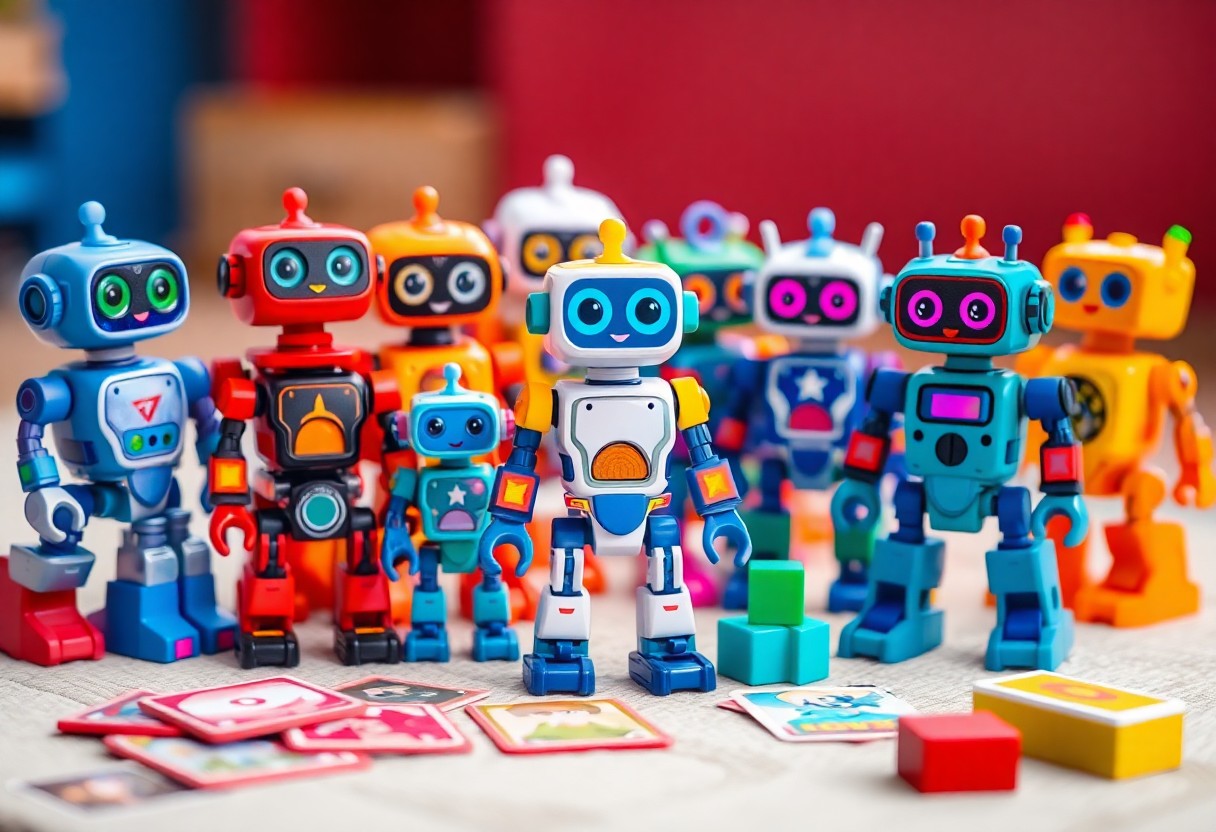You may have already heard about automata, the fascinating machines that promise to enhance various aspects of life. These intelligent devices have the potential to transform your daily tasks, from routine chores to complex decision-making. By understanding how automata work and exploring their applications, you can unlock new efficiencies and improve your productivity. In this blog post, we will probe into the ways automata could reshape your routines and the future of work, offering insights that may inspire you to embrace these revolutionary technologies.
Understanding Automata
For anyone looking to embrace the future, understanding automata is necessary. These machines or systems are designed to perform tasks automatically, often mimicking human actions. With the rise of technology, you may find automata increasingly present in various aspects of your life, enhancing productivity and efficiency.
Definition of Automata
The term automata refers to self-operating devices or systems that follow a predetermined set of rules or instructions. They can perform complex tasks without human intervention, making your daily activities more efficient and streamlined.
Historical Context
Context is important when considering the evolution of automata. Since ancient times, people have created devices to perform tasks automatically, laying the groundwork for modern robotics. You might find it fascinating how early innovations, from simple water clocks to intricate mechanical toys, paved the way for today’s advanced automation technologies.
But the history of automata goes beyond mere novelty; it reflects human ingenuity in seeking efficiency and convenience. From the mechanical birds of ancient Greece to the intricate clockworks of the Renaissance, these devices were not only entertainment but also served practical purposes in daily life. As technology advanced, your ability to program these devices improved, leading to the sophisticated algorithms that control today’s automation systems. Understanding this historical trajectory will enrich your perspective on how automata can enhance your daily endeavors.
The Role of Automata in Daily Tasks
Even as you navigate your daily life, automata have the potential to simplify tasks and increase your productivity. From managing your home environment to optimizing workplace processes, these intelligent systems can take over repetitive functions and free up your time for more meaningful engagements.
Home Automation
Between smart thermostats, lighting systems, and kitchen appliances, home automation transforms your living space into a seamless, efficient environment. You can control various elements of your home with ease, allowing you to enjoy a comfortable atmosphere with minimal effort while also conserving energy and resources.
Workplace Efficiency
Across various sectors, automata streamline workflow and enhance productivity. You can leverage automation tools to reduce the time spent on routine tasks, enabling you to focus on creative problem-solving and strategic thinking instead.
Automata in the workplace can significantly impact your efficiency by automating data entry, scheduling, and communication tasks. Implementing these systems allows you to minimize errors and improve overall productivity, resulting in a smoother workflow. By adopting automata, you not only save time but also enable your team to concentrate on high-value activities that drive innovation and growth.
Challenges in Implementing Automata
Some challenges arise when integrating automata into your daily endeavors. These include technical limitations, ethical considerations, and the potential resistance from users. When adopting automata, it is important to navigate these hurdles effectively to enhance the benefits they can provide in your life.
Technical Limitations
Limitations in technology can hinder the effective implementation of automata in your daily routines. Existing automation systems may lack the sophistication required for seamless integration, resulting in inefficient performance or a steep learning curve. Overcoming these challenges often demands substantial investment in time and resources.
Ethical Considerations
Automata also raise significant ethical considerations that you must weigh carefully. Issues such as job displacement, privacy concerns, and decision-making authority come into play when automata perform tasks traditionally done by humans.
Considering the ethical implications of automata is vital for ensuring a balance between efficiency and societal impact. You should evaluate how the deployment of these systems affects employment opportunities and personal privacy. Engaging in dialogue about their role can guide responsible implementation, promoting both innovation and societal well-being.
Future Trends in Automation
Despite the rapid advancements in automation, we are only scratching the surface of what this technology can achieve. The coming years will showcase even more sophisticated systems that integrate seamlessly into your everyday life, transforming how you work, commute, and engage with your environment. With further developments in artificial intelligence and machine learning, you can anticipate more personalized and efficient automated solutions tailored to meet your specific needs.
Advancements in Technology
To fully grasp the future of automation, it’s imperative to consider the breakthroughs in robotics, AI, and machine learning. These technologies are evolving at an unprecedented pace, enabling machines to perform complex tasks with minimal human intervention. As these advancements continue, you will benefit from smarter devices that enhance productivity, streamline processes, and provide a more intuitive experience in your daily activities.
Societal Impact
One significant aspect of automation’s future is its potential societal impact. As automated systems become increasingly prevalent, they will change the landscape of employment, education, and daily interactions. You may find that entire industries transform, necessitating an adaptation of skills and roles, ultimately altering your work environment and lifestyle.
Technology is reshaping society at multiple levels, influencing how you engage with work and leisure. A rise in automation can lead to a reduction in manual labor jobs, prompting a shift towards roles that prioritize creativity and complex problem-solving. As tasks become automated, you may also enjoy increased leisure time, allowing for a focus on personal development, hobbies, and social connections. However, this shift also demands that you adapt to new skills and engage in continuous learning to remain relevant in an evolving job market.
Case Studies
Your understanding of the potential impact of automata in daily tasks can be deepened through the examination of these case studies:
- 1. Amazon Robotics: Increased warehouse efficiency by 20% with automated picking solutions.
- 2. Tesla Autopilot: Achieved a 10% reduction in accidents among users leveraging advanced algorithms.
- 3. Starbucks: Optimized inventory management, resulting in a 15% decrease in waste.
- 4. Google Duplex: Enhanced customer engagement by handling 90% of booking calls automatically.
- 5. Domino’s Pizza: Improved delivery times by 25% through the use of AI-powered routing.
Successful Applications
Across various sectors, automata have demonstrated their ability to streamline operations. In manufacturing, the use of robotic arms has led to improved production rates and reduced labor costs. Service industries have experienced enhanced customer interactions through chatbots and virtual assistants, on average handling 30% more queries than human agents. Additionally, logistics companies have benefited from automated inventory systems, increasing inventory accuracy by 40%.
Lessons Learned
One vital takeaway from the implementation of automata is the importance of integration into existing systems. While automation can lead to significant efficiencies, businesses that succeed often invest time in training employees and ensuring that new technologies blend seamlessly with current operations. This proactive approach often leads to smoother transitions and higher overall acceptance of automated solutions.
Successful integration relies on aligning automata with workflows. Evaluating the unique challenges your organization faces can help you designate appropriate tasks for automation. Be open to iterative adjustments, as flexibility can enhance system performance. Moreover, ensuring that your staff understands the functionalities of new tools can significantly increase both productivity and morale, creating an environment where technology and human effort coexist effectively.
Recommendations for Adoption
Now is the perfect time for you to consider integrating automata into your daily routines. Start by evaluating your current tasks and identifying areas where automation can bring efficiency and consistency. Think about tools that fit your specific needs, ensuring you choose scalable solutions that will grow with your requirements.
Best Practices
Any effective adoption of automation involves piloting a few automata tools before full integration. Begin by automating simple tasks, and then assess their impact on your workflow. Collect feedback from users to refine your approach, empowering your team with training that promotes comfort and proficiency in using these new tools.
Integration Strategies
Against feeling overwhelmed, you should devise a clear plan for integrating automation smoothly into your operations. Start small and scale your efforts as you observe the benefits of automata. Prioritize collaboration among your team members to ensure everyone understands their roles within the automated processes.
At this stage, it is important to establish a timeline for integration that allows you to adapt as necessary. Focus on defining which processes will be automated first and allocate resources effectively to manage this transition. Create open lines of communication, encouraging team members to share their insights and challenges with automation. Regularly review your integration progress, making adjustments based on user feedback and performance metrics to ensure ongoing success in your automation journey.
Final Words
On the whole, automata have the potential to significantly transform your daily endeavors by enhancing efficiency and productivity. By integrating intelligent automation into your routine tasks, you can free up valuable time and mental energy for more creative and meaningful activities. As you embrace this innovative technology, you may find that your life becomes more organized and streamlined, allowing you to focus on what truly matters. Therefore, exploring the application of automata in your life could lead to a more rewarding and satisfying experience.





